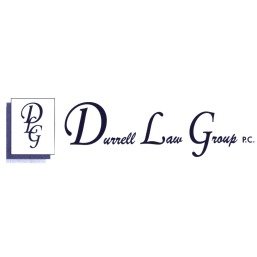Best Contract Lawyers in Alaska
Share your needs with us, get contacted by law firms.
Free. Takes 2 min.
Or refine your search by selecting a city:
List of the best lawyers in Alaska, United States
United States Contract Legal Questions answered by Lawyers
Browse our 1 legal question about Contract in United States and read the lawyer answers, or ask your own questions for free.
- What's the fee for reviewing a Home purchase contract.
- How much is your fee for looking over a contract on the house I am about to purchase.
-
Lawyer answer by US Legal Group 美国法律集团律师事务所
Hi. Thank you for reaching out to us regarding your upcoming property purchase. As a combined China & U.S. law firm, we specialize in real estate transactions and are well-equipped to review your contract.To provide you with a precise quote,...
Read full answer
About Contract Law in Alaska, United States
Contract law in Alaska governs the creation, interpretation, and enforcement of agreements between individuals and businesses. In its simplest form, a contract is a legally binding agreement in which parties promise to do or refrain from doing specific things. Alaska follows general United States contract principles while also having unique provisions under its state statutes and court rulings. Contract law is fundamental for both personal and business transactions, applying to everything from hiring services to purchasing property and more.
Why You May Need a Lawyer
There are many situations where having a lawyer experienced in Alaska contract law is highly beneficial. Common scenarios include:
- Drafting, reviewing, or negotiating contracts to ensure your rights and interests are protected
- Interpreting unclear or complex contract language
- Enforcing a contract when another party fails to fulfill their obligations, known as a breach of contract
- Defending against claims that you have breached a contract
- Handling disputes related to employment, real estate, loan agreements, or business deals
- Seeking to modify or terminate a contract
- Assessing whether a contract is valid and enforceable under Alaska law
- Addressing issues involving unconscionable or unfair contract terms
- Dealing with contracts that involve minors, government entities, or unique subject matter
Legal advice ensures your contractual relationships are secure and that you can effectively navigate any disputes or questions that arise.
Local Laws Overview
Several important aspects of contract law apply specifically within Alaska:
- Legal Requirements: For a contract to be valid, there must be an offer, acceptance, consideration (something of value exchanged), legal purpose, and capacity among the parties involved.
- Statute of Frauds: Certain contracts, such as those for the sale of real estate or agreements lasting longer than one year, must be in writing to be enforceable under Alaska law.
- Modification and Termination: Contracts can often be modified, but the changes must generally be agreed upon by all parties and may need to be in writing, depending on the situation.
- Time Limits (Statute of Limitations): Legal action for breach of contract in Alaska generally must be filed within three years for written contracts and six years for oral contracts, though there are exceptions.
- Damages: If a contract is breached, remedies may include compensation for financial loss, specific performance (forcing completion of the contract), or cancellation and restitution.
- Special Protections: Alaska provides specific protections in certain contract types, such as consumer protection laws for unfair or deceptive business practices.
- Electronic Signatures: Alaska recognizes electronic signatures and records as legally valid for most contracts.
Frequently Asked Questions
What makes a contract legally binding in Alaska?
To be binding, a contract in Alaska must have an offer, acceptance, consideration, mutual intent, a lawful purpose, and the legal capacity of parties to enter the agreement.
Are verbal agreements enforceable in Alaska?
Many verbal agreements are enforceable, but certain contracts must be in writing to be valid under Alaska's Statute of Frauds, such as those involving real estate or agreements that cannot be completed within one year.
What should I do if someone breaches a contract with me?
If you believe a contract has been breached, gather relevant documents and communication, try to resolve the matter directly if appropriate, and consult an attorney to understand your options for enforcing the contract or seeking damages.
How long do I have to file a lawsuit for breach of contract in Alaska?
In Alaska, you usually have three years to file a lawsuit on a written contract and six years for an oral contract. Exceptions and specific circumstances may alter these time periods.
Can contracts be modified after they are signed?
Yes, contracts can typically be changed if all parties agree to the modifications. Depending on the contract and type of changes, modifications may need to be in writing to be enforceable.
What happens if a contract contains unfair or unclear terms?
Alaska courts may refuse to enforce unconscionable (extremely unfair) terms or may interpret ambiguous terms based on the parties' intentions, existing laws, or customary practices.
Are electronic contracts and signatures valid in Alaska?
Yes, electronic contracts and signatures are generally recognized as valid and legally enforceable under Alaska law for most types of agreements.
Do minors have the legal capacity to enter into contracts in Alaska?
Minors typically cannot be legally bound by most contracts they enter into, except for necessities like food, shelter, or basic services. Contracts with minors may be voidable or unenforceable.
What types of damages can I recover if a contract is breached?
Potential damages include compensatory damages for actual losses, sometimes punitive damages in rare cases, specific performance (requiring completion of the contract), or cancellation and restitution.
When should I consult a contract lawyer in Alaska?
You should seek legal help when creating, signing, or disputing a contract, if you have questions about your obligations or rights, or when a dispute arises and you are unsure how to proceed.
Additional Resources
Consider reaching out to the following resources for further guidance and support regarding contract law in Alaska:
- Alaska Court System - Provides access to court forms, rules, and information on small claims and civil cases
- Alaska Bar Association Lawyer Referral Service - Helps connect the public with qualified attorneys licensed in Alaska
- Alaska Legal Services Corporation - Offers free or low-cost legal help to eligible individuals with contract disputes and related civil matters
- Municipal or Borough Legal Aid Offices - Local government offices that may provide assistance or information
- Consumer Protection Unit - Alaska Department of Law, which handles consumer contract complaints
Next Steps
If you believe you need legal help with a contract issue in Alaska, it is important to take the following steps:
- Gather all relevant documents and correspondence related to your contract
- Write down a summary of the situation, including timelines and specific issues of concern
- Research additional resources or consult official agencies if your issue involves government contracts or consumer complaints
- Contact a qualified attorney who specializes in contract law in Alaska for professional advice and possible representation
- If cost is a concern, ask about free consultations or legal aid options
- Take action promptly, as time limits may apply to your case
A knowledgeable contract lawyer can help you understand your rights, assess your options, and work towards the best possible outcome for your situation.
Lawzana helps you find the best lawyers and law firms in Alaska through a curated and pre-screened list of qualified legal professionals. Our platform offers rankings and detailed profiles of attorneys and law firms, allowing you to compare based on practice areas, including Contract, experience, and client feedback.
Each profile includes a description of the firm's areas of practice, client reviews, team members and partners, year of establishment, spoken languages, office locations, contact information, social media presence, and any published articles or resources. Most firms on our platform speak English and are experienced in both local and international legal matters.
Get a quote from top-rated law firms in Alaska, United States — quickly, securely, and without unnecessary hassle.
Disclaimer:
The information provided on this page is for general informational purposes only and does not constitute legal advice. While we strive to ensure the accuracy and relevance of the content, legal information may change over time, and interpretations of the law can vary. You should always consult with a qualified legal professional for advice specific to your situation.
We disclaim all liability for actions taken or not taken based on the content of this page. If you believe any information is incorrect or outdated, please contact us, and we will review and update it where appropriate.
Browse contract law firms by city in Alaska
Refine your search by selecting a city.














